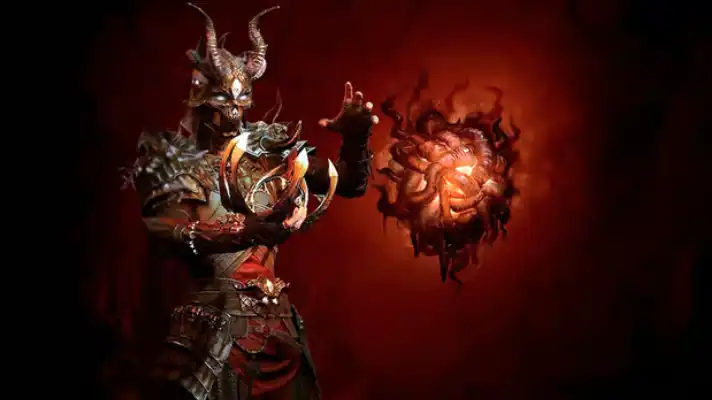Diablo 1, a game belonging to the genre loosely described as action role-playing games, or RPGs, stands out as a remarkable achievement in gaming. An unforgettable experience from the start, the player encounters a cool, dark atmosphere that is intense and stimulating. In each corner of its world waits a new challenge, a thrilling encounter that beckons the player to explore its depths.
The immersive storyline is complemented by an equally ambient soundtrack, with eeriness that evokes tension and anticipation. Diablo 1's powerful atmosphere is a testament to its creators' dedication to providing players with a unique experience. Unique and varying dungeon levels generate an inexhaustible supply of excitement for those dedicated enough to face them.
The combat system, a key aspect in Diablo 1, is extraordinarily captivating. There's a visible directness to one's actions where every swing of a warrior's sword or every spell cast has a perceptible, tangible effect. It builds not only an appreciation for the game mechanics but also a deep sense of accomplishment for every foe vanquished.

Compared to contemporary games with their flashy graphics and complex mechanics, Diablo 1 retains a simplicity that is both refreshing and charming. Despite advancements in technology, the game's mechanics remain relevant and engaging, demonstrating the timeless quality of its design.
It may be initially confusing for those accustomed to more modern games, but that's part of Diablo 1's charm. The game skillfully combines simplicity with depth, offering a plethora of options. Players are compelled to carefully plan their actions and learn from inevitable mistakes.
Unlike newer action RPGs, Diablo 1 focuses on the individual rather than the collective player base. There's a personal touch to everything from character creation to skill development and customization. These elements collectively create a sense of ownership and therefore creates a deeper connection with the game.
Diablo 1 offers memorable game experiences. These nostalgic moments can be as simple as the first encounter with The Butcher, an iconic game character remembered for his unsettling introduction. Others may find charm in Diablo 1's interesting mechanics or impressive loot system.
It's worth noting that even though Diablo 1 is challenging, its difficulty is rewarding rather than frustrating. Challenges are crafted in a way that stimulates strategic thinking. One's progress in the game does not solely rely on luck, but also on learning and adapting tactics.
Diablo 1 does not babysit the player - one learns the importance of resource management and decision-making. Decisions could mean life or death, elevating the sense of importance behind every in-game choice. This invites a level of self-discipline uncommon in today's games.
Diablo 1 encourages players to explore. Joy comes not only from completing quests and defeating enemies, but also from discovering secrets scattered throughout its world. These mysteries add an extra layer of depth to the gameplay, stimulating curiosity and a thirst for adventure.
Unlike many modern titles, Diablo 1 obliges the player to get involved in its atmosphere and narrative. Players can't rush through the game without understanding its mechanics. To progress, one must comprehend the game's unique language, its distinct signs, and its rewarding challenges.
Diablo 1's enduring appeal stems from its raw, early iteration of ARPG mechanics. It offers a fundamental and fine-tuned player experience. Casual and profound gaming fans alike can appreciate its charm, celebrating what it brought to the industry.
Even after all these years, the classic game Diablo 1 holds numerous lessons for modern game design. Its innovation of game mechanics, its rich atmosphere, and its rewarding challenges are a testament to the lasting influence of this iconic game.
Diablo 1 has the power to transport players back to simpler times. To a time when every game had a purpose beyond shiny graphics, complex mechanics, and microtransactions. It stirs a sense of belonging and appreciation to a gaming world that shaped the early days of the RPG genre.
The game's design encourages discussions and debates among fans. Despite its age, players can still learn and share knowledge about Diablo 1's strategies, bosses, and game mechanics, fostering a sense of community among gamers.
Accompanying a game that is so well-paced are the characters that bring Diablo 1 to life. The interesting mix of characters that players encounter along their journey contribute greatly to keeping the game fresh and engaging.
Diablo also provides players with a unique sense of satisfaction. Things like unearthing a good loot, defeating a challenging boss, or mastering a tough gameplay mechanic, all offer a distinctive sense of success and achievement that modern games often struggle to replicate.
Last but not least, Diablo 1's storyline, narrated with great atmosphere, intricately combines elements of horror and fantasy. The game’s lore is impressively deep and detailed, providing a rich backdrop for the intense, atmospheric gameplay.
In conclusion, Diablo 1 is a shining gem in the history of RPG games. It stands as a reminder that game design is an art. It continues to inspire not only because of its technical achievements but also how it created an unforgettable and immersive gaming experience.